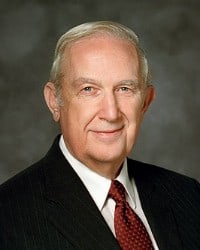
“One of the most powerful sources of personal development will come through the urgent prayers you offer in faith for a foundation of righteousness. You will learn much as feelings distill in your mind and heart. Avoid prayers that appear to be a set of instructions to the Lord – do this, bless that, change this, help me with that. Rather, be a compliant student to the Ultimate Teacher. He wants you to succeed even more than you do yourself.”
| BYU Devotional